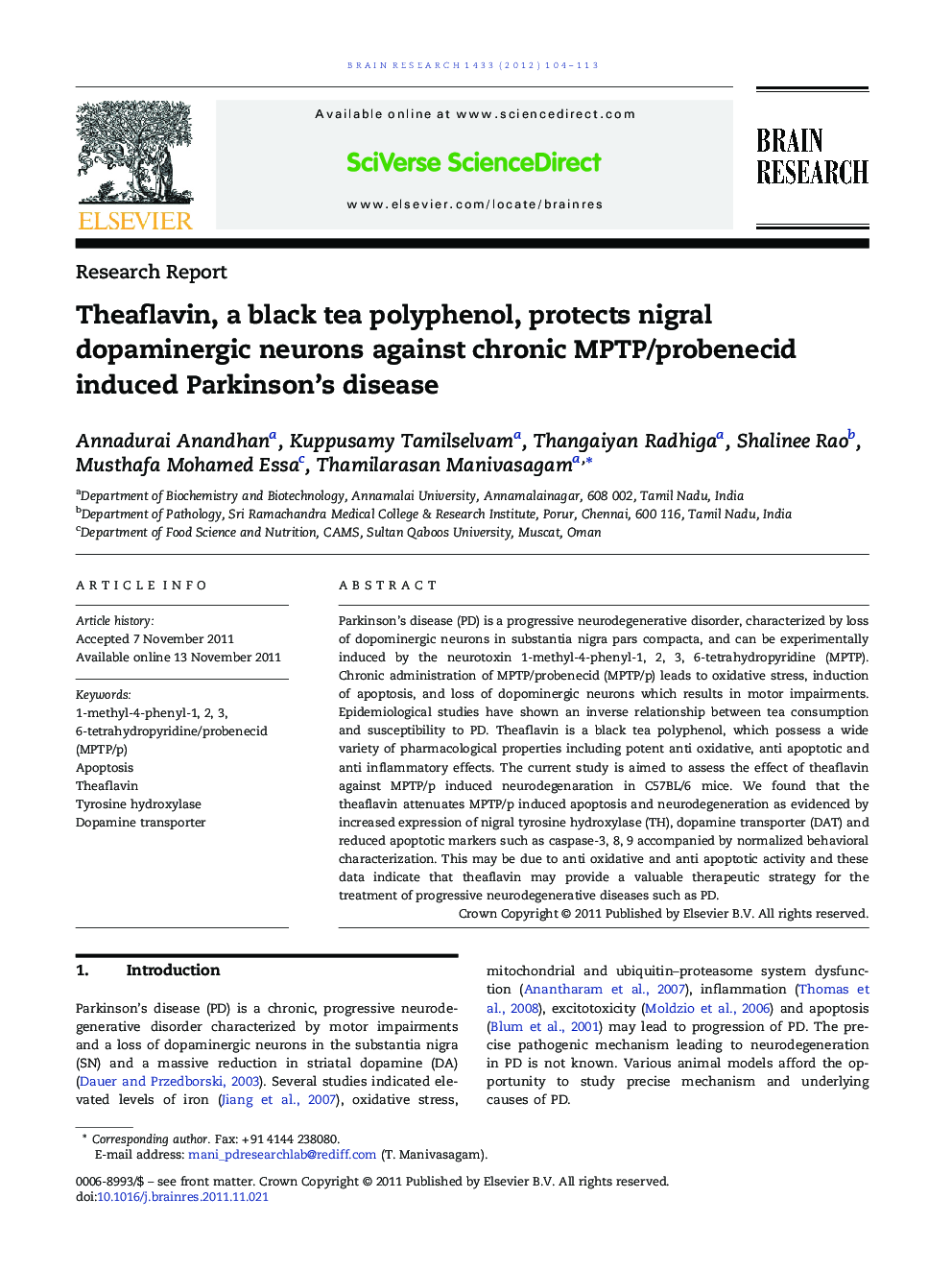| Article ID | Journal | Published Year | Pages | File Type |
|---|---|---|---|---|
| 4325488 | Brain Research | 2012 | 10 Pages |
Parkinson's disease (PD) is a progressive neurodegenerative disorder, characterized by loss of dopominergic neurons in substantia nigra pars compacta, and can be experimentally induced by the neurotoxin 1-methyl-4-phenyl-1, 2, 3, 6-tetrahydropyridine (MPTP). Chronic administration of MPTP/probenecid (MPTP/p) leads to oxidative stress, induction of apoptosis, and loss of dopominergic neurons which results in motor impairments. Epidemiological studies have shown an inverse relationship between tea consumption and susceptibility to PD. Theaflavin is a black tea polyphenol, which possess a wide variety of pharmacological properties including potent anti oxidative, anti apoptotic and anti inflammatory effects. The current study is aimed to assess the effect of theaflavin against MPTP/p induced neurodegenaration in C57BL/6 mice. We found that the theaflavin attenuates MPTP/p induced apoptosis and neurodegeneration as evidenced by increased expression of nigral tyrosine hydroxylase (TH), dopamine transporter (DAT) and reduced apoptotic markers such as caspase-3, 8, 9 accompanied by normalized behavioral characterization. This may be due to anti oxidative and anti apoptotic activity and these data indicate that theaflavin may provide a valuable therapeutic strategy for the treatment of progressive neurodegenerative diseases such as PD.
► The effect theaflavin (TF) on MPTP induced nigral neurodegeneration was examined. ► PD was modeled by MPTP-probenecid (MPTP/p) injection in mice. ► TF attenuates MPTP induced TH and DAT expression and motor impairments. ► Our findings demonstrate the neuroprotective effect of TF in C57BL/6 mice.
